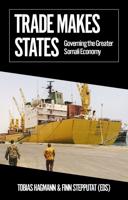Publisher's Synopsis
The charitable impulse to help people has a history rooted in ethics. However, much of what passes for humanitarianism today is a commercial enterprise, manipulated by market forces of supply and demand. And since the launch of the ""war on terror,"" national security interests and political objectives have increasingly come into play. In The Charity of Nations, Ian Smillie and Larry Minear probe the reasons behind governmental and nongovernmental responses to urgent human need. They explain why some crises get the lion's share of attention and resources, while others are essentially forgotten. The vibrantly contrasting cases of Afghanistan, East Timor, and Sierra Leone, among others, illustrate how foreign policy and domestic politics have shaped what has become the business of humanitarianism. The authors call for a revamped humanitarian structure - one that eliminates the ambiguities and confusion that exist today. They argue for a shift away from rampant political and commercial intrusions, and a rededication to multilateralism, genuine accountability, and trust. This book is poised to be one of the most important and influential assessments of humanitarianism in a decade.









